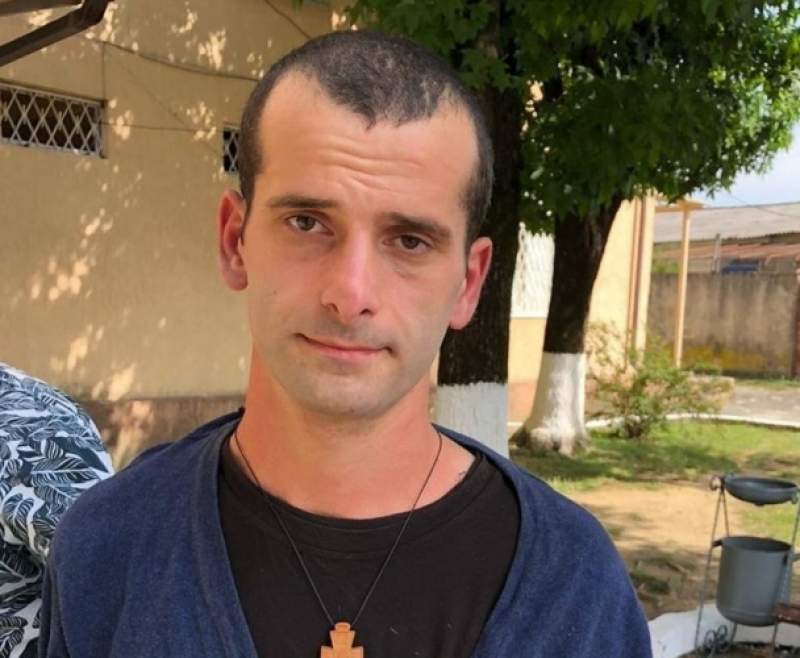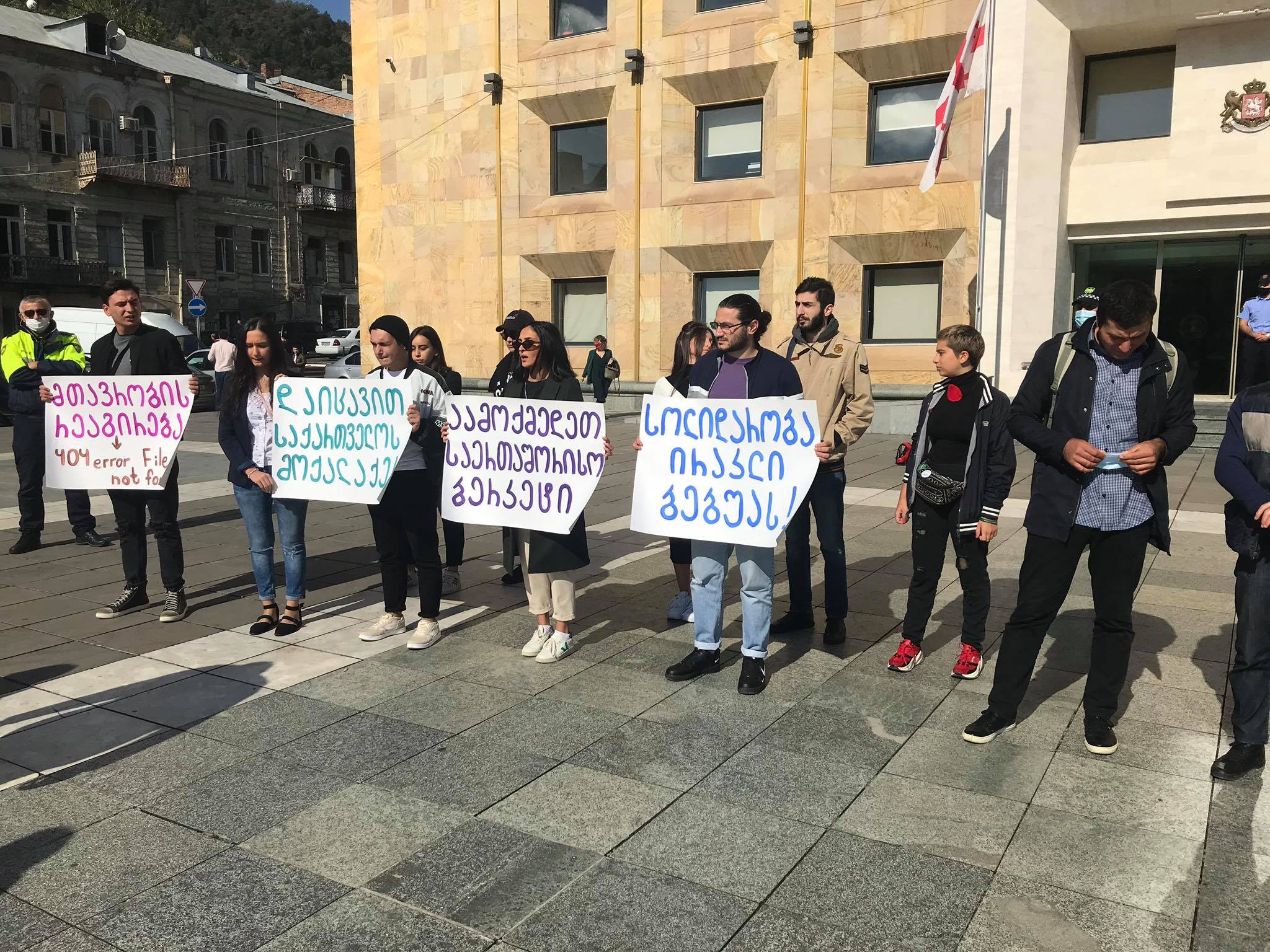
Georgian rights groups are calling on the Georgian government and diplomatic missions in Tbilisi to help free a man detained in Abkhazia for attempting to set an Abkhazian flag on fire.
Seven Georgian rights groups, including the Human Rights Education and Monitoring Centre (EMC), the Georgian Young Lawyers’ Association (GYLA) and the Democracy Research Institute (DRI), appealed in a joint statement on Monday.
Abkhazian authorities detained 27-year-old Georgian citizen Irakli Bebua after he tried to set fire to a flag outside the House of Culture in Gali (Gal). Abkhazia’s easternmost region, Gali District, is predominantly populated by ethnic Georgians.
The incident happened on 30 September, the day Abkhazian authorities marked the Day of Victory and Independence.

After being detained later that day, the footage circulated online showing Bebua admitting that he deliberately burnt the flag in protest against ‘celebrating that we [Georgians and Abkhazians] are not brothers anymore’.
In the same video, Bebua apologises to those he offended.
An outrage and additional charges
News about the incident angered some Abkhazians on social media while some Georgian pages on Facebook called him a ‘hero’.
On 1 October, the Georgian State Security Service demanded his ‘unconditional release’, reiterating that Russia was ‘fully responsible’ for such ‘illegal’ detentions.
Soon after Bebua’s arrest, Abkhazia’s Interior Ministry claimed that they had retrieved an RG-42 hand grenade from his house, allegedly kept under his pillow.
As additional charges followed, the Georgian Public Defender said on 5 October that it was ‘likely that the de facto authorities artificially aggravated charges against him’.
So far, Bebua has been charged with ‘desecration of state symbols’, intentional damage of property under aggravated circumstances and illegal arms possession.

In their 12 October letter, the Georgian rights groups argued that given the ‘political context and sensitivity’ of the incident, and allegations of frequent unlawful arrests and abuse of detainees, proactive efforts were required to ensure Bebua’s safety and the protection of his rights.
The seven rights groups called on international organisations active in Abkhazia to monitor Bebua’s health and to ensure he allowed to speak with his family.
Discrimination of ethnic Georgians in Gali
In the joint appeal to the Georgian government and diplomatic corps in Tbilisi, the Georgian rights groups cited several cases including that of Irakli Kvaratskhelia.
Kvaratskhelia, 29, reportedly hanged himself in an interrogation room after being detained by Russian border guards for ‘illegal border crossing’ near the now-defunct Khurcha-Nabakevi checkpoint in March 2019.
The circumstances of his death triggered suspicions among his family that he could have been mistreated.
In June, Abkhazia’s Human Rights Commissioner criticised what it said was Abkhazia’s discriminatory policies towards residents of Gali District, including difficulties in obtaining official documents.
A 2005 law stripped many residents of Abkhazia of citizenship granted under the previous law adopted in 1993, something that the new Abkhazian leadership under President Aslan Bhzaniya proposed to revisit but only to face backlash from the opposition groups.
[Read on OC Media: Equal and more equal: Abkhazia’s passport policy]
For ease of reading, we choose not to use qualifiers such as ‘de facto’, ‘unrecognised’, or ‘partially recognised’ when discussing institutions or political positions within Abkhazia, Nagorno-Karabakh, and South Ossetia. This does not imply a position on their status.









